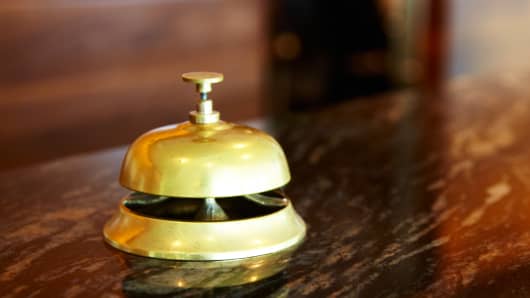With this in mind, it's important for loyalty program participants to be aware of when the changes take place, Kelly said. Starwood's changes have already gone into effect. Marriott's changes kick in on May 16. Hilton's revisions, which also introduce new top-tier categories and point values that fluctuate depending on the season, come at the end of the month. If consumers book their stays before these dates, they can use their points at current rates.
Geoffrey Puzzi, a 30-year-old Hilton Diamond member, is doing just that by proactively booking rooms now, particularly at hotels in higher categories.
"As much as I would like to use all my Hilton points now, I probably won't be able to. But that is not to say I will not be trying. With the old system, I could've gotten around $5,000 in free rooms. Now, I will be lucky to get half that," he said.
Best Western customers aren't experiencing this problem, however, as the brand is a stand-out that is bucking the trend.
The company has no immediate plans to revise its points program and their points thresholds for redeeming free rooms have remained the same since 2002, said Tammy Lucas, Best Western's Managing Director of Marketing Programs.
"There's no question the rise in demand and the increase in average daily rates are certainly some things driving cost up on free nights. So from a business perspective, that would be my assumption [why other chains are making changes]," she said.
David Loeb, a senior research analyst at Robert W. Baird, agrees. He said the reason such a large number of the other brands are implementing changes simultaneously is likely because they are all responding to the same macro forces that are making the industry stronger.
(Read More:Expect Rapid Growth in Luxury Hotels: Starwood CEO)
"Industry occupancy is rising. So for an owner or operator, giving up a room that could be rented by a cash-paying guest to let someone redeem points has a rising cost in terms of giving up the opportunity to make more revenue," Loeb wrote, in an email interview.
According to Baird Research and Smith Travel Research, occupancy and another key hotel metric, revenue per available room, are both strengthening industry-wide. Since 2009, they are up 13.2 percent and 22 percent respectively.
The changes come down to the bottom line for hotels, according to Loeb. "[The brands] are trying to reduce the cost of those redemptions to themselves and reduce the financial impact to their owners," he said.
Meanwhile, Best Western's decision to stay the course may be a sign that the brand is prioritizing its appeal to a value-oriented customer.
"What it comes down to is that everyone has marketing dollars and it's how companies choose to spend those marketing funds," Lucas said. "For Best Western, our position is our marketing dollars are being re-invested into taking care of our guests...we shift marketing dollars to ensure we're staying on this path."
The company is hoping to position itself as an alternative for rewards members that are fed up with the wave of points devaluations. For example, Best Western is promoting a program where it matches members' elite status in any other hotel loyalty program free of charge as a unique benefit.
Being aware of what alternatives are out there is something Kelly encourages for all rewards programs participants amid all the changes.
"You should evaluate your loyalty. Loyalty should go both ways," he said. "You shouldn't be blindly loyal to a hotel chain because it may make sense to switch to a different chain or maybe even start using sites like Priceline."
(Read More: Elite Status for Million-Mile Fliers: Why Miles Alone May Not Be Enough)
-By CNBC's Amara Omeokwe; Follow her on Twitter @ProducerAmara.


